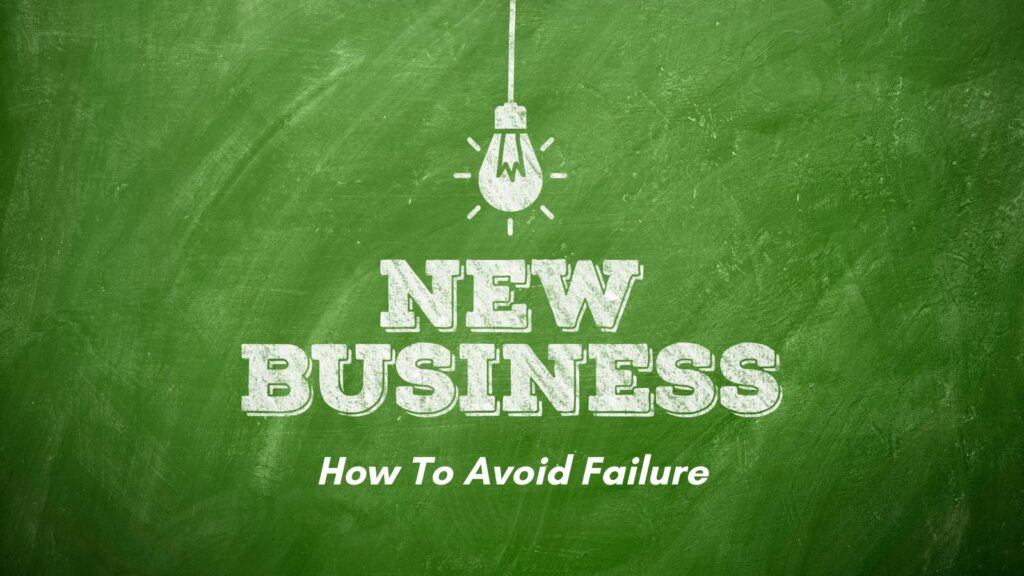My son asked me last year, “How Can We Start a Small Business Heading Into 2025?” He was interested in starting a business for the upcoming year.
Starting a small business in 2025 requires careful planning and a solid strategy to navigate the ever-evolving business landscape. With the right approach, entrepreneurs can use emerging trends and technologies to position their businesses for success.
This blog post will explore practical steps and essential considerations for launching a small business in the coming year.
From leveraging digital marketing tools to understanding consumer behavior, I will provide insights to help you kickstart your small business journey with confidence.
Table of Contents
Assessing the Business Idea
Starting a small business in 2025 requires thoroughly assessing the business idea to ensure it aligns with market needs and trends, evaluating competition, and conducting feasibility studies.
Identifying Market Needs and Trends
Understanding the current market needs and trends is essential for the success of a small business. Conduct market research to identify what products or services are in demand and analyze consumer behavior and preferences.
This will help identify gaps in the market that the business idea can address, ensuring its relevance and potential for success.
Last year, I interviewed with a small business that did just that. You can listen to the owner and her two children from The Goat Farm about their experience of how we can start a small business from goat’s milk.
How Can We Start A Small Business by Evaluating Competition?
Assessing your competitors is crucial to determining the viability of the business idea. Identify direct and indirect competitors, analyze their strengths and weaknesses, and understand how the proposed business can differentiate itself.
This evaluation will provide insights into the industry’s challenges and opportunities, allowing for strategic positioning and differentiation.
As you heard from The Goat Farm, making their products different from other companies gave them an edge.
Conducting Feasibility Studies
Conducting feasibility studies involves evaluating the practicality and potential of the business idea. This includes assessing the financial aspects, market demand, resource availability, and technical feasibility.
By conducting usefulness studies, entrepreneurs can lessen the risks, make informed decisions, and develop a clear roadmap for implementing the business idea.
By thoroughly assessing the business idea through market needs, trends, competition evaluation, and feasibility studies, entrepreneurs can lay a solid foundation for a small business poised for success in 2025.
Creating a Solid Business Plan
Before launching your small business, it is vital to develop a comprehensive business plan that outlines your vision and strategies for success.
A well-crafted business plan serves as a roadmap, guiding your decisions and actions as you navigate the complexities of entrepreneurship.
The first step is to write down a business plan on paper. Having it written down will help you remember your plan. Is it a business you can work from home?
Defining Business Objectives and Goals
Begin by clearly defining your business’s objectives and goals. What do you aim to achieve with your venture?
Whether it’s providing a unique product or service, filling a gap in the market, or contributing to your community, define your mission and vision.
Outline specific, measurable, achievable, relevant, and time-bound (SMART) goals that align with your overarching business objectives.
Market Analysis and Marketing Strategy
Conduct a thorough market analysis to understand your industry, target audience, and competitors. Identify market trends, consumer behaviors, and unmet needs within your niche.
This analysis will inform your marketing strategy, helping you devise effective tactics to reach and engage potential customers.
Develop a compelling brand story, define your unique selling proposition (USP), and create a marketing plan that leverages online and offline channels to build brand awareness and drive sales.
How Can We Start A Small Business Financially?
Craft realistic financial projections encompassing your revenue streams, expenses, and anticipated growth over the coming years. Consider factors such as production costs, pricing strategies, and sales forecasts.
Additionally, outline a funding plan that details how you intend to finance your business operations, whether through personal savings, loans, investors, or other sources of capital.
Demonstrating a clear understanding of your financial needs and opportunities will bolster your credibility with potential stakeholders and lenders.
By addressing these above components within your business plan, you’ll lay a solid foundation for your small business as you start on the exciting journey of entrepreneurship.
Legal and Regulatory Requirements For Starting Small Businesses
Understanding the legal and regulatory requirements when starting a small business is crucial for long-term success.
It involves choosing the right business structure, registering the business, and obtaining permits and licenses.
How Can We Start A Small Business By Choosing the Right Biz Structure?
How can we start a small business with the proper business structure?
Selecting the appropriate business structure is a critical decision that impacts various business aspects, including taxes, liability, and operations.
Options such as sole proprietorship, partnership, limited liability company (LLC), and corporation have unique implications.
Consultation with a legal or financial professional is recommended to ensure the selected structure aligns with the business’s specific needs and goals.
First Step of How Can We Start a Small Business: Registering the Business
After determining the business structure, the next step involves registering the business with the relevant authorities.
This typically includes obtaining a unique business name, an employer identification number (EIN) from the IRS, and registration with the state government.
Each country area may have specific requirements, so thorough research and compliance are essential.
Obtaining Licenses and Permits
Depending on the nature of the business, specific permits and licenses may be required to operate legally. These could include zoning permits, health permits, and professional licenses.
Identifying and obtaining the necessary permits and licenses is paramount to avoiding fines, penalties, or business closures.
Researching local and federal regulations and engaging with industry-specific organizations can clarify the mandatory permits and licenses for the business.
Building a Strong Online Presence
In today’s digital age, establishing a robust online presence is crucial for the success of any small business. With the evolution of technology, consumers increasingly turn to the internet to discover, engage with, and make purchases from businesses.
Building a strong online presence involves developing a business website, implementing effective SEO strategies, and leveraging social media marketing.
This was definitely the case with The Goat Farm, as they gained a lot of traction from Gab’s social media.
Developing a Business Website
How can we start a small business without a website? You really will need one for your new business.
Your business website serves as the digital storefront for your venture. It’s the first point of contact for many potential customers, making it essential to create a professional, user-friendly, and visually appealing website.
Ensure that your website effectively communicates your brand story, showcases your products or services, and provides seamless navigation for visitors.
Additionally, optimize your website for mobile devices to cater to the growing number of mobile users.
Implementing SEO Strategies
Search engine optimization (SEO) is paramount for increasing online visibility and driving organic traffic to your website. Conduct keyword research to identify relevant terms and phrases that your target audience is searching for.
Integrate these keywords naturally into your website’s content, meta descriptions, and headers to improve your search engine rankings.
Furthermore, focus on creating high-quality, original content that resonates with your audience and encourages them to engage with your brand.
Leveraging Social Media Marketing
How can we start a small business without a significant social media presence?
Social media platforms offer a powerful avenue to connect with your audience, build brand awareness, and drive traffic to your website.
Create a social media strategy that aligns with your business goals and target demographics. Consistently share valuable content, engage with your followers, and utilize paid advertising to expand your reach.
Building a strong social media presence can cultivate a loyal community around your brand and increase your business’s online visibility.

Financial Management
Effective financial management is crucial for the success of any small business venture.
It involves a strategic approach to handling various aspects, such as setting up accounting systems, managing cash flow, and tax planning and compliance.
Setting Up Accounting Systems
A well-organized accounting system is essential for tracking financial transactions and assessing a small business’s overall financial health.
Software like QuickBooks or Xero can streamline the process and provide valuable insights into a company’s financial performance.
How Can We Start A Small Business without Managing Cash Flow?
Maintaining a healthy cash flow is imperative for the sustainability of a small business.
By monitoring accounts receivable and accounts payable, companies can optimize cash flow and make informed decisions regarding expenses and investments.
Tax Planning and Compliance
Navigating the complex landscape of tax regulations requires meticulous planning and strict adherence to compliance.
Small businesses should seek professional guidance to maximize tax efficiencies while ensuring adherence to all relevant laws and regulations.
This proactive approach can lead to substantial cost savings and prevent legal issues.
Incorporating these financial management practices can lay a solid foundation for a small business’s long-term success and growth.
How Can We Start a Small Business by Hiring a Team?
Understanding the significance of hiring the right team is crucial for the success of any small business.
It begins with defining clear roles and responsibilities for each team member, followed by a comprehensive recruitment and training process and fostering a positive work culture.
Defining Roles and Responsibilities
When starting a small business, clearly defining the roles and responsibilities of each team member is essential. This involves outlining the specific tasks, goals, and expectations for every position within the company.
Establishing clear job descriptions ensures that each employee understands their contribution to the business’s overall success.
Recruitment and Training
Recruiting the right individuals requires a strategic approach. Small business owners should seek candidates who possess the necessary skills and experience and align with the company’s values and vision.
Training programs should be implemented once the team is in place to provide employees with the knowledge and tools needed to excel in their roles.
Creating a Positive Work Culture
A positive work culture is integral to maintaining a motivated and engaged team. Encouraging open communication, recognizing achievements, and offering a supportive environment can significantly impact employee satisfaction and productivity.
Small business owners should prioritize creating a welcoming atmosphere that promotes collaboration and mutual respect among team members.
Scaling and Growth Strategies
Expanding a small business requires careful planning and strategic decision-making. Identifying expansion opportunities is crucial for sustained growth.
Next, consider offering new products or services, targeting different customer segments, or exploring new markets to reduce risk and maximize growth potential.
Strategic partnerships and alliances can provide access to new resources, expertise, and customer bases, fostering accelerated growth and market expansion.
The Goat Farm has affiliates they have aligned to expand their small business.
Identifying Expansion Opportunities
When looking to scale your small business, it’s crucial to identify expansion opportunities that align with your core competencies and market demand.
Analyze current market trends, consumer behavior, and demographic shifts to pinpoint areas with growth potential.
Researching emerging markets and untapped customer segments can provide valuable insights for expansion.
Diversification and Innovation to Start a Business
Diversifying your product or service offerings and innovating to meet evolving customer needs can propel your business forward.
Explore opportunities to create new revenue streams by developing complementary products or services or adapting existing offerings to cater to market segments. Embracing innovation can help your business stay ahead of the competition and capture new markets.
Strategic Partnerships and Alliances
Collaborating with external partners, affiliates, suppliers, or complementary businesses can open doors to new opportunities for growth.
Strategic partnerships and alliances can provide access to additional resources, expertise, and distribution channels.
By leveraging the strengths of partner organizations, your small business can expand its reach and capabilities, fostering sustainable growth.
Flexibility and a willingness to explore new avenues are essential for seizing expansion opportunities and driving sustainable business growth.
Conclusion of How Can We Start a Small Business in 2025?
Small businesses today can stand out by offering personalized experiences and exceptional customer service.
In 2025, it will be key to focus on building strong relationships with customers, understanding their needs, and delivering personalized solutions.
The podcast made that clear, as Heather from The Goat Farm mentioned that some products were made based on customer requests.
By prioritizing customer experience, small businesses can foster loyalty and drive business growth.




